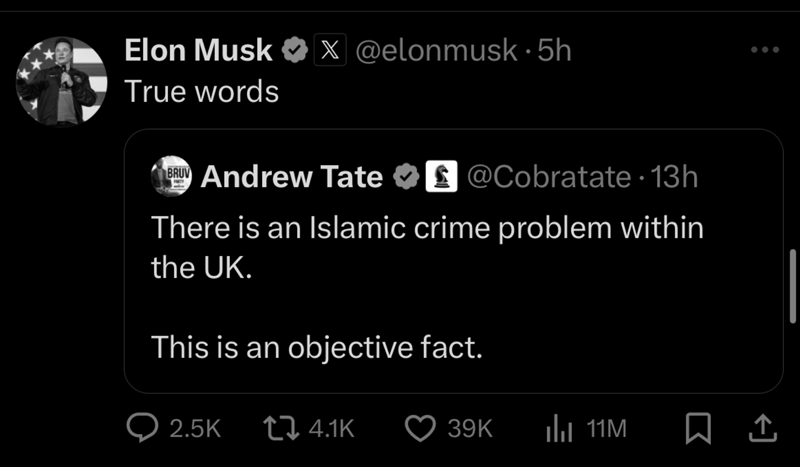The Youth Lab
THE MAGA/TECH COLLISION COURSE WITH EUROPE
Cover Photo Credit: Nathan Laine Bloomberg, Aurelin Meunier & Brandon Bell, Getty Images
|
|

Probably the least sensational ,but most pertinent for brands and those in the marketing Industry, was Mark Zuckerberg’s announcement just three days ago that Meta will be replacing fact checkers with community notes.
In practice this means that independent third-party fact-checkers like Snopes and PolitiFact that have been part of Meta’s factchecking programme since 2016 with the aim of combatting misinformation have been disbanded. This decision is part of a shift towards a new system called "Community Notes," inspired by a similar feature on 𝕏 . Community Notes will allow users to add context to potentially misleading posts, aiming to democratise the fact-checking process.
So what changes? Fact-checking organisations often detail their methodologies, but their decisions can still be seen as authoritative or top-down. Community notes, however, gets contributions from the general public rather than a centralised authority, aiming to crowdsource a variety of perspectives to provide balanced, context-rich annotations that help others evaluate the veracity or nuance of a claim. This system is often seen as more democratic, but there are concerns about the quality and reliability of contributions, especially if malicious or misinformed users participate.
“A small amount of misinformation can have a big effect because it exploits cognitive biases, spreads quickly through these social networks, and creates doubt or emotional responses that disproportionately influence perceptions and decisions.”
Donagh Humphreys (Head of Social and Digital Innovation, Thinkhouse)
Though Zuckerberg’s changes don’t sound terribly drastic, the Guardian reports “The changes to Meta’s global policies on hateful content now include allowing users to call transgender people “it”, with the guidelines stating: “We do allow allegations of mental illness or abnormality when based on gender or sexual orientation.”
A telling example given Zuckerberg’s apparent U-turn on all things MAGA. Trump was famously banned from Facebook and Instagram following the January 6th Capitol riots for inciting violence. But since Trump’s victory in the November election, one which Zuckerberg labelled “a cultural tipping point”, he has dined with him at Trump’s Florida residence Mar-a-Lago, replaced Nick Clegg (former Deputy UK PM) with Joel Kaplan (a prominent Republican who has voiced concerns that Meta’s content policies could be perceived as being biased against ‘conservative’ content) as president of global affairs, appointed longtime Trump supporter and UFC CEO, Dana White, to the board of Meta, and donated $1million to Trump's inauguration fund.

Image: Former American secretary of labour Robert Reich gives his two cents on why Zuckerberg is going full MAGA
MUSK GOES TO WAR WITH EUROPE

Image: Elon Musk is happy fuel a frenzy around 'grooming gangs' while endorsing an individual charged with rape, human trafficking, and forming an organized crime group to sexually exploit women.
Since Elon Musk’s purchase of Twitter in 2022, he has been an ever-present figure in 52INSIGHTS. At first, this coverage examined changes he was making to the social media landscape but soon evolved into coverage of changes he was making to the Geo-Political landscape. Last year, he picked a fight with legislators in Brazil and the new government in Venezuela, and began a tirade against the newly elected Labour Party in Britain which he has ramped up significantly in just the last week.
Using the very real, if historical, issue of “grooming gangs” to drum up a frenzy of fear and outrage in UK media and online conversations, Musk has been relentlessly tweeting and retweeting posts and content on 𝕏 calling into question state failures in child protection in the UK. While obviously a serious issue, it is not a current one, with all the cases dating back to a period between 1997 and 2013. So why the outrage now?
And why so radical in how to tackle it? Musk has bluntly called for “the removal of the British prime minister before the next election,” saying that he is "deeply complicit in the mass rapes in exchange for votes." Musk has also called Jess Philips, MP and safeguarding minister within the Home Office, a “Rape, genocide apologist”.
But it’s not just the UK that is in Musk’s cross hairs. Accusations of election interference are already being levelled at Musk ahead of next month’s snap general election in Germany. He has labelled the far right Alternative fur Deutschland (AFD) party the only one that can “save Germany” in an article in Die Welt. (The head of the paper’s opinion section promptly resigned on its publication.) By publication of this article, Musk will have done a live broadcast on 𝕏 with the leader of the AFD party —one which EU regulators will be listening to very closely.
While these interventions centre largely around anti-muslim sentiment and support parties and groups with that hue – it is perhaps the anti-EU angle that is of more interest to Musk and the MAGA gang. He already has the support of the far right, euro sceptic leaders Victor Orban in Hungary and Giorgia Meloni in Italy – who has publicly labelled him a “brilliant man” and “a major figure of our time, an extraordinary innovator who always has the future in mind.”
So why pick a fight with Europe? One word – legislation.

Image: A four year old Tweet about Elon Musk’s SpaceX that feels just as relevant today for X
| |||||
|

